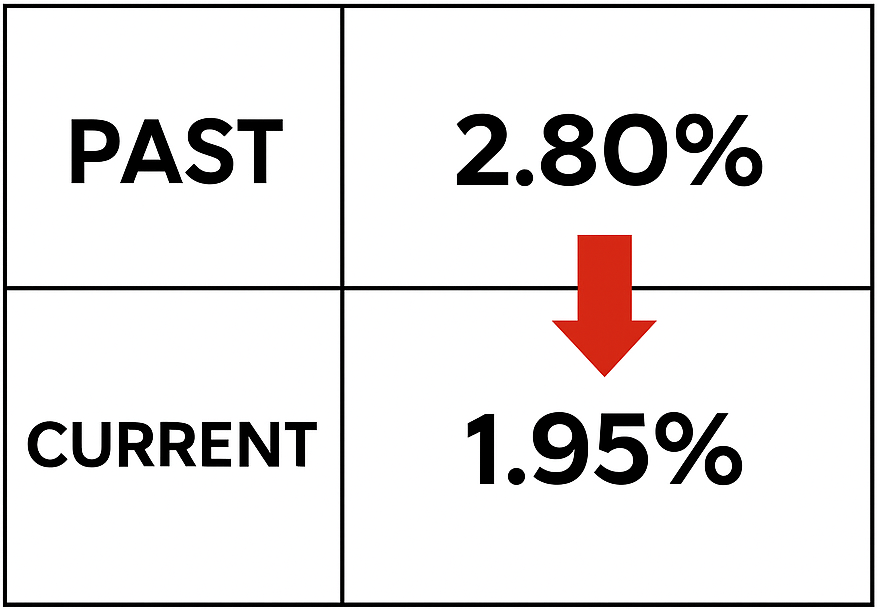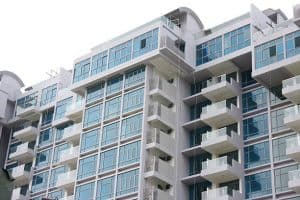Thinking about buying a home in Singapore? You’ve probably come across the term “mortgage insurance.” But what is it, and why is it important in 2025? Mortgage insurance helps protect you and your family by ensuring your home loan is covered if something unexpected happens.
Whether you’re eyeing a BTO flat or a private condo, understanding mortgage insurance options like HPS, MRTA, and even Level Term Insurance can save you a lot of stress—and money—down the road.
In this guide, we’ll explain what mortgage insurance is, how it works with CPF, and share tips for choosing the right plan for your needs. Let’s get started!
Understanding Mortgage Insurance
Buying a home is a big deal—probably the biggest financial decision you’ll make. But here’s something most homeowners overlook: mortgage insurance. Think of it as a financial safety net that protects your home loan if life doesn’t go as planned.
What is mortgage insurance and how does it function in Singapore?
Mortgage insurance in Singapore is all about protecting your home loan if life doesn’t go as planned. Here’s how it works depending on your property type:
Mortgage Insurance Options for HDB and Private Properties
| Property Type | Common Insurance Type | How It Works |
|---|---|---|
| HDB Flat | Home Protection Scheme (HPS) | CPF Board’s mandatory scheme that pays off the loan if you pass away, get critically ill, or become permanently disabled. |
| Private Property | Mortgage Reducing Term Assurance (MRTA) | Covers your outstanding loan balance, with the sum assured decreasing as you pay down your mortgage. |
| Private Property | Level Term Insurance | Keeps the sum assured constant throughout the policy term, providing extra flexibility for other protection needs. |
Expert Tip: Don’t mix up mortgage insurance with home fire insurance. They’re completely different—mortgage insurance covers your loan, not your building or contents.
Why is mortgage insurance crucial for homeowners?
Imagine this: You’re juggling a home loan, living expenses, and everything else that comes with adulting. If something happens to you, would your family be able to manage that loan on their own?
Here’s why mortgage insurance matters:
- Financial Protection: It keeps your loved ones from being saddled with monthly repayments.
- Required by CPF: If you’re using CPF for HDB payments, HPS is mandatory.
- Peace of Mind: You can sleep better at night knowing your home is secure, no matter what life throws at you.
I’ve worked with homeowners who underestimated the stress that an unpaid loan can bring. Having the right mortgage insurance truly makes a difference.
Who should consider mortgage insurance in Singapore?
Short answer? Almost everyone. Whether you’re buying a BTO, upgrading to a condo, or refinancing your home loan, mortgage insurance is a smart move.
Here’s who definitely needs it:
- First-time buyers using CPF for HDB flats—HPS is a must.
- Private property owners with a long mortgage tenure—MRTA or level term insurance adds a safety net.
- Homeowners planning to refinance—always review your mortgage insurance during the refinancing process.
Pro Tip: Curious about private property loans? Check out Ace Mortgage’s guide to private property loans to see how mortgage insurance fits into your financing strategy.
And hey—don’t forget to keep an eye on current home loan rates in Singapore so you’re always making informed decisions.
Types of Mortgage Insurance in Singapore
When it comes to protecting your home loan in Singapore, there’s no one-size-fits-all solution. Different property types—and even personal preferences—call for different kinds of mortgage insurance.
Let’s dive into the three main types of mortgage insurance you’ll find in Singapore: Home Protection Scheme (HPS), Mortgage Reducing Term Assurance (MRTA), and Level Term Insurance. Understanding each can help you choose the right one for your needs.
Home Protection Scheme (HPS) for HDB owners
If you’re buying an HDB flat and using CPF savings to pay your monthly housing loan, HPS is mandatory. Managed by the CPF Board, HPS ensures that if you pass away, become critically ill, or permanently disabled, your outstanding HDB loan will be fully paid off.
Key points about HPS:
- It’s automatically offered when you take up an HDB loan using CPF savings.
- Premiums can be paid through your CPF Ordinary Account, making it hassle-free.
- Coverage ends when the loan is fully paid or when you sell your flat.
Even if you’re paying your loan with cash, it’s still wise to consider HPS for that added financial safety net. Learn more about HDB home loan rates and how CPF interacts with your mortgage insurance
Mortgage Reducing Term Assurance (MRTA) for private property
For private property owners, MRTA is one of the most popular choices. Unlike HPS, MRTA is offered by private insurers and provides decreasing coverage that matches your loan balance over time. This means you’re only paying for the coverage you actually need as your loan balance reduces.
Why MRTA works:
- It’s tailored to your home loan tenure and amount.
- Premiums are usually lower than level term insurance because the coverage reduces over time.
- Some MRTA plans allow single premium payments, saving you the hassle of yearly renewals.
Check out our private property loan guide to see how MRTA fits into your financing plan.
Level Term Insurance as an alternative
Level Term Insurance is another option for homeowners who want fixed coverage throughout the policy term. Unlike MRTA, the coverage amount doesn’t decrease as you pay down your mortgage, making it more flexible for other needs like income protection.
Benefits of Level Term Insurance:
- Provides consistent coverage that can also be used for other liabilities.
- Suitable for homeowners who want to leave a larger financial safety net for their family.
Can sometimes be more cost-effective if you’re young and healthy.
Comparing HPS, MRTA, and Level Term Insurance
| Insurance Type | Who It’s For | Key Features |
|---|---|---|
| Home Protection Scheme (HPS) | HDB owners using CPF | Mandatory with CPF housing loan, premiums via CPF, covers death, critical illness, or permanent disability. |
| MRTA | Private property owners | Decreasing coverage aligned with loan balance, lower premiums, single premium options. |
| Level Term Insurance | Any homeowner seeking flexibility | Fixed coverage amount throughout the term, can also cover other liabilities. |
If you’re not sure which one’s right for you? Speak to a mortgage broker—they can help tailor the right plan based on your property type, loan amount, and personal needs.
Home Protection Scheme (HPS) in Detail
If you’re an HDB flat owner, chances are you’ve come across the Home Protection Scheme (HPS). It’s a critical part of protecting your family and your home, and in 2025, it’s more relevant than ever.
Whether you’re a new homeowner or planning to refinance, understanding HPS inside and out will help you make confident decisions about your mortgage.
How does HPS work and who is eligible?

HPS is a mandatory mortgage insurance scheme managed by the CPF Board that pays off your outstanding HDB loan if you pass away, become critically ill, or suffer permanent disability.
It’s automatically applied if you’re using CPF savings to service your housing loan, but you can also pay premiums in cash if you prefer.
Who’s eligible for HPS?
- Singapore Citizens and PRs with an HDB loan.
- Those using CPF to pay their monthly loan instalments.
- You must pass a health declaration (and in some cases, a medical check-up).
Even if you’re paying with cash, you can still apply for HPS for added peace of mind.
Curious about HDB home loan rates? Check out our HDB home loan guide for the latest rates and tips.
Recent updates to HPS as of mid-2025
In 2025, HPS received some important updates that make it more inclusive. As of June 2025, HPS now allows coverage for certain pre-existing conditions like controlled hypertension and mild asthma, helping more homeowners qualify.
This is a game-changer, especially for buyers with health histories that previously disqualified them.
Key HPS Updates in 2025
| Update | What It Means for Homeowners |
|---|---|
| Coverage for select pre-existing conditions | More homeowners now qualify for HPS, including those with controlled hypertension or mild asthma. |
| Streamlined medical assessment | Faster application process with less paperwork. |
| Flexible premium payment options | Pay premiums via CPF or cash for better budgeting. |
Stay up-to-date with CPF Board’s official HPS page for the latest details.
How to apply for or be exempted from HPS
Applying for HPS is simple if you’re using CPF to pay your loan—HPS is automatically applied. But you’ll need to complete a health declaration, and sometimes a medical check-up if requested.
Steps to apply for HPS:
- Submit your health declaration through the CPF website or at a Service Centre.
- Pay your premiums through CPF (OA) or cash.
- Keep track of your premium renewals to ensure continuous coverage.
Seeking exemption?
If you already have a mortgage insurance policy with equivalent or better coverage (like an MRTA or level term insurance), you can apply for an exemption from HPS. Make sure your private insurance fully covers your outstanding loan.
Need help choosing a private insurance plan? Our mortgage insurance guide breaks down your options and helps you compare the best deals.
Comparing HPS, MRTA, and Level Term Insurance

Choosing the right mortgage insurance is more than just ticking a box—it’s about finding the best fit for your home loan, your lifestyle, and your peace of mind.
Let’s break down how the three main types—Home Protection Scheme (HPS), Mortgage Reducing Term Assurance (MRTA), and Level Term Insurance—stack up in 2025.
Key differences between HPS, MRTA, and Level Term Insurance
To help you choose the right policy for your needs, here’s a quick comparison of the three main types of mortgage insurance in Singapore—HPS, MRTA, and Level Term Insurance—based on who manages them and their key features.
Key differences between HPS, MRTA, and Level Term Insurance
| Insurance Type | Who Manages It? | Key Features |
|---|---|---|
| Home Protection Scheme (HPS) | CPF Board | Compulsory for HDB loans using CPF; covers death, total permanent disability, and critical illness. |
| Mortgage Reducing Term Assurance (MRTA) | Private Insurers | Designed for private property; coverage decreases as your loan balance reduces. |
| Level Term Insurance | Private Insurers | Provides consistent coverage over the entire policy term; can also cover other liabilities. |
Don’t just pick the cheapest—think about what kind of coverage you and your family actually need!
Cost-effectiveness analysis of each insurance type
- HPS tends to be the most affordable because it’s a group insurance plan administered by CPF. Premiums are deducted directly from your CPF Ordinary Account, so it’s convenient too.
- MRTA often has lower premiums compared to Level Term Insurance because the coverage amount decreases as you pay off your loan.
- Level Term Insurance typically costs more than MRTA but offers consistent coverage that can double as life insurance or be used to cover other liabilities.
Curious about home loan interest rates Singapore and how they affect your premiums? Visit our home loan rates page for the latest insights.
Flexibility and portability considerations
Choosing the right plan also means thinking about your future plans:
- HPS is tied to your HDB loan and CPF usage. If you sell your flat or switch to a bank loan, you might lose coverage and need to reapply.
- MRTA is more flexible if you’re planning to refinance or switch properties. Some plans even let you transfer your coverage to a new loan.
Level Term Insurance stands out for portability—you can keep your coverage even if you move or refinance, making it a good fit for homeowners who want long-term protection.
Comparing HPS, MRTA, and Level Term Insurance
| Insurance Type | Premium Costs | Flexibility | Portability |
|---|---|---|---|
| Home Protection Scheme (HPS) | Most affordable; CPF-deducted | Limited to HDB loans via CPF | Tied to HDB; ends if flat is sold |
| Mortgage Reducing Term Assurance (MRTA) | Mid-range; coverage reduces | Flexible; can be adjusted during refinancing | Some portability with select insurers |
| Level Term Insurance | Highest cost; fixed coverage | Highly flexible; covers multiple liabilities | Fully portable; keeps coverage regardless of property status |
Need advice on choosing the right mortgage insurance? Speak with a mortgage advisor who can help you find the best fit based on your home loan and personal needs.
Mortgage Insurance vs. Life Insurance
Many homeowners wonder: “Do I really need mortgage insurance if I already have life insurance?” It’s a great question, and one that’s more relevant than ever with rising home loan rates in Singapore and increasing property prices.
Let’s clear the air by breaking down the key differences, real-world scenarios, and the pros and cons of both.
Differences in coverage and purpose

When it comes to protecting your family’s future, mortgage insurance and life insurance serve different—but equally important—purposes. Here’s how they compare:
- Mortgage Insurance (HPS, MRTA, Level Term Insurance)
- Specifically designed to pay off your outstanding home loan if you pass away, become critically ill, or suffer permanent disability.
- Coverage is often linked to your loan balance:
- MRTA: Decreases as you repay your loan.
- Level Term Insurance: Stays constant throughout the policy term.
- MRTA: Decreases as you repay your loan.
- Focuses on ensuring your family keeps their home, free from debt.
- Specifically designed to pay off your outstanding home loan if you pass away, become critically ill, or suffer permanent disability.
- Life Insurance
- Provides a lump sum payout to your beneficiaries.
- Can be used for any financial need—daily living expenses, children’s education, or even paying off your mortgage.
- Not tied to your home loan and can be customized for different financial goals.
- Provides a lump sum payout to your beneficiaries.
If keeping your family in their home is your top priority, mortgage insurance should be at the top of your list.
Scenarios where both insurances are beneficial
There’s no rule saying you can’t have both—and in fact, many homeowners do. Here’s why:
- Scenario 1: You have an HDB flat with HPS (required if you’re using CPF). A separate life insurance policy ensures your family has additional funds for other needs, like education or daily expenses.
- Scenario 2: You own a private property and have an MRTA to cover your loan. Adding a life insurance policy creates a financial safety net that’s flexible for your family’s future.
- Scenario 3: You’re planning to refinance your mortgage—having both types of insurance ensures continuous protection for your home loan and gives you the option to adjust your coverage as needed.
For help comparing home loan options, check out our home loan rates in Singapore page to understand how insurance fits into your financing plan.
Pros and cons of each insurance type
Wondering whether mortgage insurance or life insurance makes more sense for you? Here’s a quick breakdown of the pros and cons of each, so you can understand how they serve different purposes in your overall financial protection plan.
Pros and Cons of Mortgage Insurance vs. Life Insurance
| Insurance Type | Pros | Cons |
|---|---|---|
| Mortgage Insurance | Pays off outstanding home loan; protects family’s home; required for HDB loans | Tied to the mortgage; may not cover other financial needs |
| Life Insurance | Flexible payout for any financial need; not tied to the home loan | May not fully cover your mortgage if policy is insufficient |
Personal Insight: Having both types of insurance gives homeowners peace of mind. Mortgage insurance secures the family home, while life insurance gives loved ones flexibility to cover other expenses.
Looking to protect your home loan and your family? Our mortgage insurance guide can help you find the best plan to fit your needs and budget.
Costs and Premiums
Mortgage insurance in Singapore isn’t just about choosing the right plan—it’s also about understanding how much it costs and how to budget for it.
With home loan rates fluctuating and different insurance types available, knowing what affects your premium can help you make smarter decisions for your property and your wallet.
Factors affecting mortgage insurance premiums

Several factors come into play when calculating your mortgage insurance premium:
- Age: Younger homeowners often pay lower premiums because they’re considered lower risk.
- Loan Amount: The higher your mortgage, the higher your premium, as coverage must match your loan balance.
- Loan Tenure: Longer loans usually mean higher premiums, as the risk to the insurer is spread over a longer period.
- Health Status: Some insurers may require medical checks, and pre-existing conditions can influence premium costs.
- Property Type: HDB homeowners under HPS typically enjoy lower premiums, while private property owners under MRTA or Level Term Insurance may pay more depending on the coverage and policy features.
Expert Tip: Always compare plans from different insurers and consider whether a shorter or longer loan tenure suits your financial goals.
Want to explore your options? Visit our mortgage loan calculator to estimate your monthly repayment and see how it fits your budget.
Estimating your mortgage insurance cost
Calculating your mortgage insurance premium isn’t one-size-fits-all, but here’s a rough guide:
- HPS (Home Protection Scheme): Premiums are calculated based on your age, gender, loan amount, and loan tenure. CPF’s HPS calculator can give you a quick estimate.
- MRTA: Typically, the premium is determined at the start of the policy and can be paid as a single premium or annually, depending on the plan.
Level Term Insurance: Premiums are generally higher but provide consistent coverage throughout the term, making them suitable for those wanting added flexibility.
Estimated Premium Ranges for Mortgage Insurance Types
| Insurance Type | Estimated Premium (Annual) |
|---|---|
| HPS (HDB Loans) | S$100 – S$400 per year (varies by age and loan size) |
| MRTA (Private Property) | S$300 – S$800 per year (based on loan size and term) |
| Level Term Insurance | S$500 – S$1,200 per year (depends on coverage) |
Curious about home loan interest rates in Singapore and how they affect your premiums? Check out our home loan rates page for the latest updates.
Payment methods and CPF usage
One of the benefits of mortgage insurance—especially HPS—is its flexibility in payment methods:
- CPF Ordinary Account (OA): Most homeowners choose to pay HPS premiums directly from their CPF OA, making it seamless and cash-free.
- Cash Payments: Available for HPS, MRTA, and Level Term Insurance; some private insurers also offer credit card or GIRO payments for added convenience.
- Combination Payments: For flexibility, some homeowners choose to split payments between CPF and cash, depending on their CPF OA balance.
Expert Tip: If you’re refinancing or switching properties, review your payment method and check whether your new loan structure still qualifies for CPF usage under HPS.
Learn more about how CPF interacts with your home loan and mortgage insurance in our CPF home loan guide.
Managing Your Mortgage Insurance
Mortgage insurance isn’t a set-it-and-forget-it deal. As your life circumstances or property situation changes, it’s crucial to know how to update, adjust, or even cancel your mortgage insurance policy.
Let’s unpack what you need to know to keep your protection in top shape—whether you’re refinancing, selling, or just rethinking your plan.
Updating or changing your mortgage insurance policy
Life doesn’t stand still, and neither should your insurance. Here’s when you might need to update or change your mortgage insurance:
- Loan Refinance: If you refinance your home loan, your coverage may need to be adjusted to match your new loan balance.
- Changes in Loan Tenure: Extending or shortening your loan term can affect your premium and coverage.
- Health Changes: If your health status improves or if you’ve cleared certain medical conditions, you might be eligible for better rates.
Expert Tip: Always review your insurance policy when you make big property or financial moves—like refinancing or upgrading to a new home.
Thinking about refinancing? Check out our refinancing guide for the latest insights.
Cancelling or terminating mortgage insurance

There may come a time when you want to cancel or terminate your mortgage insurance. For example, you might have fully repaid your loan, or you may have switched to a different policy. Here’s how to navigate that:
- HPS (HDB Owners): You can apply to cancel HPS once your loan is fully paid or if you’ve switched to a private insurance policy with equivalent coverage.
- MRTA & Level Term Insurance: Contact your insurer directly to cancel; note that cancelling early might mean you don’t get a refund on premiums paid.
- Switching Insurers: Ensure your new policy is in force before cancelling the old one to avoid coverage gaps.
Learn more about HDB loan rates and how your insurance ties into your loan.
Impact of refinancing or selling your property on mortgage insurance
Refinancing or selling your property can have a big impact on your mortgage insurance coverage. Here’s what to consider:
- HPS: If you refinance from an HDB loan to a bank loan, you may lose your HPS coverage and need to apply for a private insurance plan.
- MRTA & Level Term Insurance: Check if your plan is transferable to the new loan or if you need to purchase a new policy. Some plans allow seamless transfer; others require a fresh application.
Selling Your Property: When you sell, your existing mortgage insurance coverage typically ends along with the loan. Make sure to review your policy to avoid paying unnecessary premiums.
Mortgage Insurance Considerations When Refinancing or SellingScenario
| Scenario | What to Consider |
|---|---|
| Refinancing from HDB to bank loan | You may lose HPS coverage; consider MRTA or Level Term Insurance. |
| Refinancing within same loan type | Check if your current insurance is portable; update the sum assured if needed. |
| Selling your property | Mortgage insurance coverage typically ends; cancel your policy to avoid overpaying. |
Curious about refinancing? Our refinance home loan guide breaks down everything you need to know, from rates to paperwork.
Mortgage Insurance and CPF

In Singapore, CPF (Central Provident Fund) isn’t just for retirement—it’s a key player in home financing and mortgage insurance too. Understanding how CPF interacts with your mortgage insurance can save you time, money, and stress.
Let’s dive into how CPF usage affects mortgage insurance requirements, the rules you need to know, and how to apply for exemptions when you’ve got your own private policy.
Interaction between CPF usage and mortgage insurance requirements
If you’re using CPF savings to pay for your home loan, the Home Protection Scheme (HPS) is typically mandatory. HPS protects your outstanding loan amount in case of death, total permanent disability, or critical illness, ensuring your family won’t lose the roof over their heads.
Expert Tip: Even if you’re paying your housing loan with cash, CPF usage for your home triggers the HPS requirement.
Key Takeaway: CPF ties your mortgage insurance closely to your loan, so make sure you’re covered.
For details on HDB loans and CPF usage, check out our HDB home loan guide.
CPF rules governing mortgage insurance

CPF Board’s rules around mortgage insurance are straightforward but essential to understand:
- Mandatory Coverage: HPS is compulsory for HDB flat owners using CPF to pay monthly instalments.
- Premium Payments: Premiums for HPS can be automatically deducted from your CPF Ordinary Account (OA).
- Policy Termination: HPS coverage ends when the housing loan is paid off or if you fully redeem the loan early.
Pro Tip: CPF lets you pay HPS premiums through your OA, so you don’t have to worry about separate payments.
Stay up-to-date on home loan interest rates Singapore to understand how CPF usage affects your monthly mortgage obligations. Visit our home loan rates page for the latest updates.
Applying for HPS exemption with CPF policies
Already have a private mortgage insurance policy (like MRTA or Level Term Insurance) that fully covers your loan? You may be eligible for an HPS exemption—meaning you won’t have to pay twice for protection.
Here’s how to apply:
- Get a Letter of Certification from your private insurer showing the policy covers your outstanding loan.
- Submit an HPS Exemption Application to CPF Board along with the letter.
Wait for Approval—once approved, you’re free from HPS premiums as long as your private policy remains valid.
CPF HPS Exemption Process
| Step | What to Do |
|---|---|
| 1. Get Private Insurance | Ensure your MRTA or Level Term Insurance covers your full loan. |
| 2. Obtain Certification | Request a Letter of Certification from your insurer. |
| 3. Apply to CPF Board | Submit the application online or at a CPF Service Centre. |
| 4. Wait for Approval | CPF Board will review and grant the exemption if eligible. |
Expert Tip: Always check with your insurer and CPF Board before applying for exemption—missing paperwork can delay approval.
For more information on CPF and mortgage insurance, visit the CPF Board’s official HPS page.
Mortgage Insurance for Different Property Types

When it comes to mortgage insurance in Singapore, one size definitely doesn’t fit all. Whether you’re buying an HDB flat, a private property, or an executive condominium (EC), the requirements and options vary. Let’s break down what homeowners need to know in 2025.
Mortgage insurance requirements for HDB flats
If you’re purchasing an HDB flat and using CPF savings to pay your monthly housing instalments, you’re automatically required to be covered under the Home Protection Scheme (HPS). This CPF Board scheme ensures that if something happens to you, your loan is paid off and your family can keep the flat.
Expert Tip: HPS premiums are deducted directly from your CPF Ordinary Account (OA), so you don’t have to worry about separate payments.
For the latest on HDB home loan rates, check out our HDB loan page.
Considerations for private property owners
Private property owners have more flexibility when it comes to mortgage insurance. While HPS isn’t mandatory for private properties, most banks strongly recommend having coverage to protect your investment. Popular options include:
- Mortgage Reducing Term Assurance (MRTA): Coverage that decreases as you pay down your mortgage.
- Level Term Insurance: Fixed coverage that can also serve as life insurance.
Pro Tip: Always align your coverage with your loan amount and tenure—this ensures you’re paying for what you actually need.
Not sure which loan is best for your property? Explore our private property loan guide to make an informed decision.
Specifics for executive condominiums (ECs)
Executive condominiums (ECs) sit in the sweet spot between public and private housing—and so do their mortgage insurance considerations. If you’re using CPF savings for your EC mortgage, you’re required to have HPS coverage.
However, once the EC is privatized (usually after the Minimum Occupation Period), you may consider switching to private insurance like MRTA or Level Term Insurance for more flexibility.
Mortgage Insurance Options by Property Type
| Property Type | Recommended Insurance | Key Considerations |
|---|---|---|
| HDB Flats | HPS (mandatory with CPF usage) | Covers loan if death/illness occurs; premiums via CPF OA. |
| Private Property | MRTA or Level Term Insurance | Choose based on loan tenure and amount; more flexibility. |
| Executive Condominiums | HPS (initially) + MRTA/Level Term | HPS required if using CPF; consider private insurance post-MOP. |
Expert Tip: EC owners should plan ahead—think about your insurance needs post-MOP to avoid coverage gaps.
Curious about mortgage insurance options for your home loan? Check out our mortgage insurance guide for all the details.
Choosing the Right Mortgage Insurance
With so many options available, choosing the right mortgage insurance policy can feel overwhelming. But don’t worry—here’s how to make sense of it all and pick the plan that best suits your needs, budget, and peace of mind.
Factors to consider when selecting a mortgage insurance policy

When shopping for mortgage insurance in Singapore, keep these factors in mind:
- Coverage Amount: Does the policy fully cover your outstanding loan balance?
- Premiums: Are they affordable and sustainable for the length of your loan?
- Policy Term: Is the coverage term aligned with your mortgage tenure?
- Flexibility: Can you adjust the coverage as your circumstances change?
Expert Tip: Don’t forget to factor in your age, health, and CPF usage when choosing a policy—these can significantly affect both coverage and premiums.
Check out our mortgage loan calculator to see how different loan scenarios can affect your insurance needs.
Comparing mortgage insurance providers

Not all mortgage insurance providers are the same. Here’s what to look for:
- Reputation: Choose established insurers with a strong track record in Singapore.
- Claims Process: A smooth claims process is essential when you or your family need support.
- Riders and Add-Ons: Some insurers offer additional features like critical illness riders—consider if these are important to you.
Portability: If you plan to refinance or move, check whether the policy is portable or if you’ll need to start from scratch.
Key Factors When Comparing Mortgage Insurance Providers
| Factor | Why It Matters |
|---|---|
| Reputation | Trustworthy insurers mean less stress during claims. |
| Claims Process | A smooth process ensures timely payouts when needed. |
| Riders and Add-Ons | Extra protection for critical illness or disability. |
| Portability | Flexibility if you refinance or move. |
Curious about your options? Check out our home loan rates page to see how mortgage insurance fits into your overall home financing plan.
Seeking professional advice on mortgage insurance in Singapore
If you’re feeling unsure, speaking with a mortgage advisor can help. A good advisor can:
- Compare policies from multiple providers to find the best fit.
- Explain complex terms in simple language.
- Help you understand how CPF usage, refinancing, and property type affect your insurance needs.
Expert Tip: A mortgage broker can also help you find the best home loan interest rates in Singapore—saving you money on both your mortgage and your insurance.
Need expert help? Contact one of our Singapore mortgage brokers today for personalized advice.
Frequently Asked Questions About Mortgage Insurance

Got questions about mortgage insurance? You’re not alone! Here’s a quick look at some of the most common queries homeowners have—answered in plain English to make things easier.
Is mortgage insurance compulsory in Singapore?
For HDB homeowners who use CPF savings to pay their monthly housing loan instalments, Home Protection Scheme (HPS) is compulsory. This ensures your outstanding loan is covered if you pass away, become critically ill, or suffer permanent disability.
For private property owners, mortgage insurance isn’t mandatory but is strongly recommended by banks and financial advisors to protect your family’s home.
Expert Tip: Even if you’re paying cash, having mortgage insurance in place can give your loved ones peace of mind.
Curious about HDB home loans? Check out our HDB loan guide for the latest rates and tips.
Can existing life insurance be used as mortgage insurance?

In some cases, yes! If you have a life insurance policy that fully covers your outstanding mortgage loan and meets CPF’s requirements, you may be eligible for an HPS exemption. This means you won’t have to pay twice for protection.
However, it’s important to ensure that your life insurance sum assured matches or exceeds your mortgage balance—and that it covers the same risks (death, critical illness, total permanent disability) that HPS would.
Pro Tip: Always get a letter of certification from your insurer and apply for an HPS exemption with CPF Board before cancelling any existing HPS coverage.
Need help? Check out our mortgage insurance guide for insights into the best policies available.
Consequences of stopping mortgage insurance premium payments
Stopping premium payments can have serious consequences:
- HPS: Your coverage will lapse, leaving your family vulnerable to having to pay off the remaining home loan themselves if something happens to you.
- MRTA and Level Term Insurance: If you miss payments, your coverage may be suspended or terminated, and reinstating it could be costly or impossible—especially if your health has changed.
- Loan Compliance: Some banks may require proof of mortgage insurance as part of their loan conditions; losing coverage could affect your loan terms.
Expert Tip: If you’re struggling with premiums, talk to your insurer or CPF Board about flexible payment arrangements instead of letting the policy lapse.
For more on refinancing and managing your home loan, check out our refinancing guide to keep your mortgage strategy on track.
Latest Updates and Trends in 2025

The mortgage insurance landscape in Singapore is evolving—and staying informed about the latest developments can help you make smarter decisions. From policy changes to shifting market trends, here’s what you need to know in 2025.
Recent changes in mortgage insurance regulations

As of June 2025, CPF Board has introduced more inclusive eligibility for the Home Protection Scheme (HPS). This means homeowners with certain pre-existing conditions (like controlled hypertension and mild asthma) may now qualify for HPS, expanding coverage to more Singaporeans.
Private insurers have also updated their guidelines, making it easier for homeowners to apply for Mortgage Reducing Term Assurance (MRTA) and Level Term Insurance with streamlined medical declarations.
Expert Tip: Always double-check the latest CPF Board policies and private insurer guidelines when applying for or renewing your mortgage insurance.
For more on CPF housing loan usage, visit our HDB home loan guide.
Trends in mortgage insurance premiums and coverage
Mortgage insurance premiums have become more competitive in 2025, with insurers offering:
- Discounted rates for younger homeowners.
- Bundled coverage that includes critical illness riders and other add-ons.
- Flexible payment options including CPF deductions and single premium payments.
At the same time, coverage is expanding to include benefits like disability riders and optional waiver-of-premium features for policyholders facing financial difficulties.
Stay updated on home loan rates in Singapore by visiting our home loan rates page.
Economic factors impacting mortgage insurance in Singapore
The economic climate in 2025—marked by fluctuating interest rates, property market changes, and evolving CPF policies—directly affects mortgage insurance costs and coverage. Rising property prices mean higher loan amounts, which in turn can impact your premiums.
At the same time, banks and insurers are introducing more flexible options to cater to homeowners seeking to refinance or adjust their policies. For instance, some MRTA plans now allow partial premium refunds if you sell your property or refinance before the policy term ends.
Key Economic Factors Influencing Mortgage Insurance in 2025
| Economic Factor | Impact on Homeowners |
|---|---|
| Rising Property Prices | Higher mortgage amounts may lead to higher premiums. |
| Fluctuating Interest Rates | Changes in home loan rates can influence premium costs. |
| CPF Policy Adjustments | Affects eligibility and premium payment options. |
Pro Tip: Keep an eye on Singapore’s property and mortgage market to stay ahead of premium hikes and changing coverage options.
Looking to refinance your home loan? Check out our refinancing guide for insights on how refinancing can affect your mortgage insurance.
Conclusion: Secure Your Home with the Right Mortgage Insurance

Choosing the right mortgage insurance isn’t just a box to tick—it’s a decision that can make all the difference for your family’s future. Whether you’re buying your first HDB flat, refinancing your private property, or exploring executive condominiums, understanding your options like HPS, MRTA, and Level Term Insurance is essential.
In Singapore’s evolving property market, where home loan rates and CPF rules are always changing, staying informed and protected matters. Don’t leave your home—and your loved ones—unprotected.
Expert Tip: Before deciding, review your loan tenure, property type, and budget to choose the plan that best fits your needs.
For a personalized recommendation or to explore current home loan rates in Singapore, check out our home loan rates page and talk to one of our mortgage advisors today.
Your home is more than just a property—it’s your family’s sanctuary. Make sure it’s protected.














